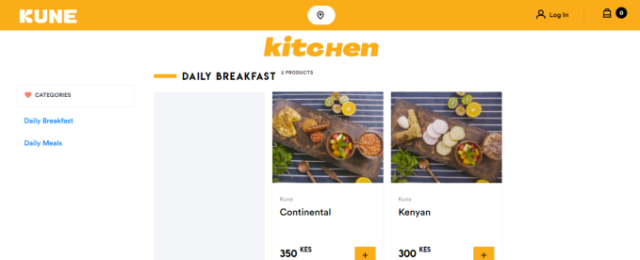Today, a sixth-month old food startup from Nairobi, Kune, announced that it raised USD 1 Million in a pre-seed round, to launch its service in Kenya in the upcoming month of August.
This round was led by Launch Africa, a Pan-Africa venture capital firm, with the participation of Century Oak Capital GmbH and Consonance, with help from Pariti, an ecosystem management firm.
Kune plans to launch fully, after its new factory gets completed in August. And as the details have been seen on its site, it is promising that delivery of the orders will be completed within 30 minutes daily.
Words from Investors-
The reason behind Launch Africa investing in Kune was its hybrid model. The director of the firm, Baljinder Sharma said, “leveraging the cloud kitchen model and owning the entire supply chain provides a massive growth and scaling opportunity for Kune Africa.We are looking forward to seeing the business take off and grow.”
About Kune –
Kune was conceived by Robert Reecht and started in November 2020. It delivers freshly made meats at an affordable price.
When Reecht came to Kenya he noticed that having ready to eat meat was difficult at an affordable rate. It developed a pilot in a week, and with a ready waitlist of 50 customers in a particular office space. The company sold more than 500 meals for USD 4 each. It acquired more customers in a short span of time, from 50 to 150.
Words from the founder –
The CEO of Kune, Robert Reecht shared about his experience how he initiated Kune:
“After three days of coming into Kenya, I asked where I can get great food at a cheap price, and everybody told me it’s impossible. It’s impossible because either you go to the street and you eat street food, which is really cheap but not-so-good quality, or you order on UberEats, Glovo or Jumia, where you get quality but you have to pay at least $10.”
He shared how they took hiatus, while everything was going in a flow, as more orders were coming, more than they expected and with a lack of settings:
“We had started to mess up the order because, you know, it’s complicated to get food right when you’re just in a small kitchen setting. So I said okay, that there is no point doing that, and the demand is so high and better to do things right.”
“Our strategy is to internalize all production and human resources capacities,” he added.
For more extensive analysis and Market Intelligence reports feel free to approach us or visit our website: Venture Capital Market Intelligence Reports | VCBay.
We try our best to fact check and bring the best, well-researched and non-plagiarized content to you. Please let us know
-if there are any discrepancies in any of our published stories,
-how we can improve,
-what stories you would like us to cover and what information you are looking for, in the comments section below or through our contact form! We look forward to your feedback and thank you for stopping by!


































[…] Next Article […]